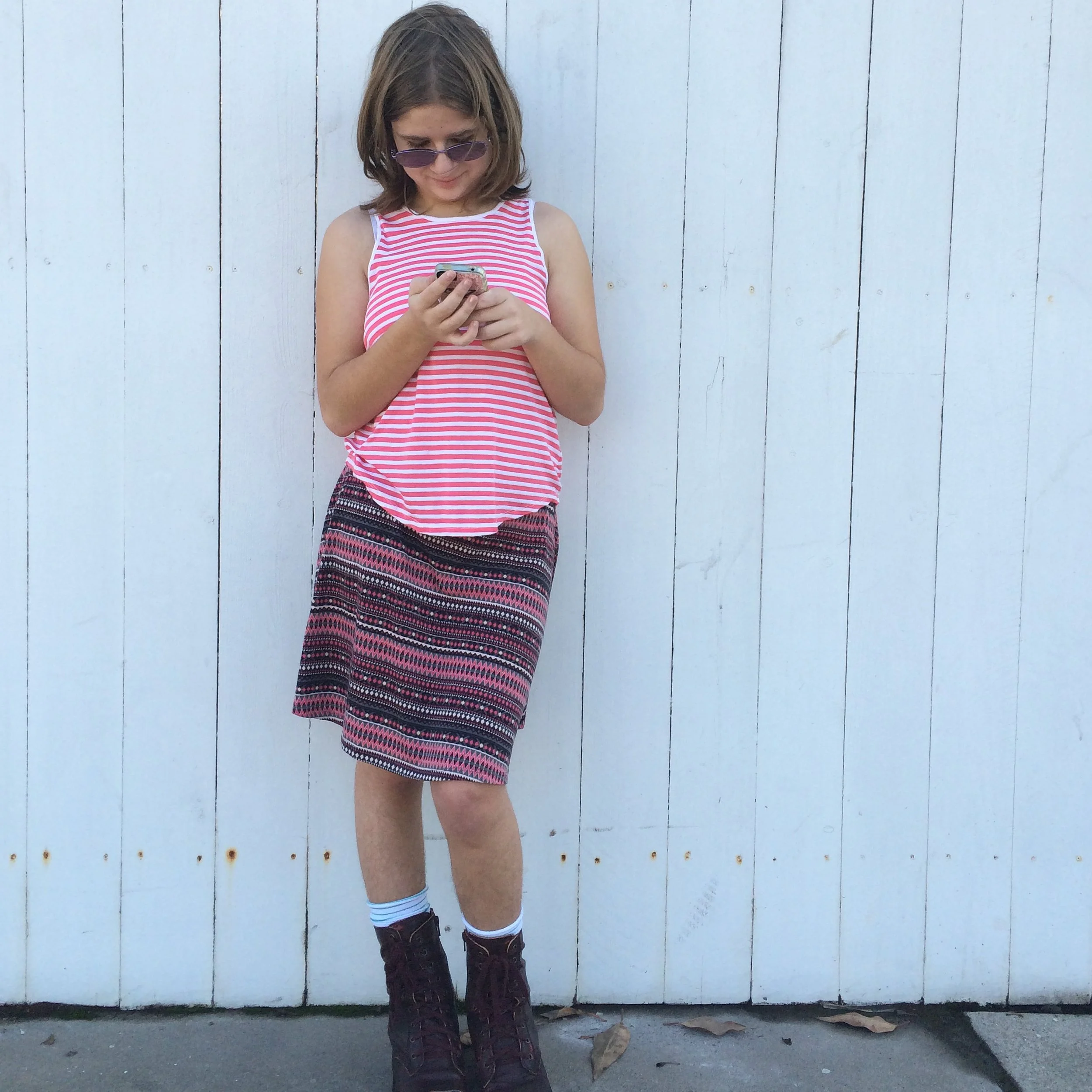Unique Me On The Verge Of Noise
When I was in 3rd grade, I did something arguably terrible. Was I young? Yes. Would it have been positively inexcusable had I been even a day older or a smidgen more mature? Yes.
So, at my elementary school, there was this boy... let's call him "Louis," for privacy reasons. He was autistic; developmentally not where the rest of us were at the time, and nonverbal—but made noise very often. And... I can't believe I'm going to say this… but you could see it. Physically, you could tell he was different. He was. And different isn't bad, absolutely not, but the way he was different from us gave the rest of us 3rd graders a "back away slowly" impression.
We were afraid, some of us even angry. Why is he so weird? Why is he special? Why does he get away with everything? Our teachers never explained what autism was, or what some of the symptoms could be. Me? I had an active imagination. I literally thought the kid was possessed. That's something schools could do: talk. About things.
Because:
I took the "Louis is possibly an alien from Venus" feeling and ran with it.
I tied him up with a jump rope.
I’ll explain. It was during recess. To be honest, Louis annoyed me, I was deeply annoyed, from the bottom of my heart. I just didn't feel any positive emotion for him. Two of my close friends and I cornered him against a hidden section of the gate that was shaded by trees. I was the ringleader. My best friend left—she didn't think I would do it, and she certainly didn't want me to. I can't remember exactly how my remaining friend and I tied this kid up; it was sort of unkempt, just enough to prevent him from escaping. I wanted him out of my life.
Sometime later, we found ourselves in the principal's office. (Of course.) I don’t recall how it happened—it must have been that the aide Louis and I shared (that was another thing I hated. I hated having something in common with him) had caught up with us by then. I had never been to the principal's office before, but what we did was a pretty good reason to end up there. My best friend, the closer of the two, was crying, and that's when my "Oh, I relate to you!" feelings kicked in. I took all the blame and begged for them to let her off. I stayed inside for a few recesses while she was out playing, but to me, it was worth it.
I thought it was over.
But two weeks later, we were called back into the principal's office. My petulant little self thought, "What now?" My best friend and I were clueless until Louis' aide explained that Louis had gotten rope burn from the offending jump rope. (How did they find this two weeks later? I still don't know.) I didn't know what autism was, but I did know what rope burn was: rope burn is caused by rubbing the rope vigorously, especially if the rope is made of a strong, firm material. I didn't remember rubbing him with the rope, I remember tying him up with it. I didn't even realize this until years later: he had been trying to escape the jump rope, and rubbed himself raw with it. I was insensitive enough to imagine that he would just... I don't know, stay put.
That certainly wasn't a good story, but you need to know I put my friends up to that. You need to know someone innocent got caught in the crossfire of my carefully disguised self-esteem issues. Three people, actually: two bystanders, and a victim of my bullying.
In elementary school, I remember one other person who gave me the "back away slowly" feeling. We’ll also call her "Louis." Actually, no, that would be way too confusing. Let's call her "Shirley." Shirley" did not have autism, but she was just as developmentally—am I allowed to say?—stunted as Louis was. But she was more outgoing than he was, which was worse for me. She pulled people's hair and shouted randomly. She could not control herself very well (I recall thinking she couldn't control herself at all). I don't remember ever letting her touch me. I sidled out of rooms when she entered, and prepared to plug my ears when she was around. Her story with me isn't as grand or long (this is it, actually), but it is important. It shows that no matter how varied an example of disability was in my life, I was uncomfortable with it.
I didn't realize I myself was disabled until late in elementary school. I knew I had supplements to take at every meal, and I had trouble walking down stairs, which is why I had an aide—to aid. But I thought it stopped there.
I've been diagnosed many times over by all sorts of doctors. I have an official diagnosis (mitochondrial disease), which makes sense in some ways, even though we have no idea what I am or what I have or what caused it, really. Two pretty obvious symptoms of whatever this is are:
1. Balance and strength issues, from the waist down. I'm not paralyzed. My brain's great (clearly). My arm muscles are noticeable. *wink wink* I'm nearly ambidextrous with most hand functions. My inner ears are fine. I can walk. Just not well, at all. When I'm not using my wheelchair, I require a walker, and I don't use it that often. Fatigue has me in the wheelchair, mostly. Yeah, we have no idea what's happening. I could walk when I was younger (elementary school age was the best, for those keeping track), but even then, I had a limp—even though I wasn’t injured.
2. Sensory issues. I hate getting water in my ears. Hearing strong bass in live music feels like getting punched. Microphone feedback literally makes me scream sometimes, as though I'm in pain. When it comes to physical or auditory senses (I’m fine with sight most of the time), I feel what you feel—but heightened, like it’s higher in strength. Which is why I'm a hypochondriac. "Subtle" feelings really get me down and anxious.
Now, think about the two people I've described to you: Louis and Shirley. What did they have in common? Let's see:
1. Random noises, including screaming and out-of control, toddler-like tantrums.
2. They cared a great deal about their personal space, but not yours.
I want you to understand something—I wish these kids no ill will at all, but listen! One of the many doctors I've been to dropped a book on the floor once to test my reaction, and I started sobbing! If Louis had made such a noise behind me, or when I wasn't looking, my eyes would've widened in fright, my ears would've perked up, and I would've shouted, "What the f@ck was that??" in rage and panic, if I had used that vocabulary in 3rd grade. If Shirley attempted to pull my hair, as was her trademark, I would've done a war cry in response, and thrown my hands had I had my wits about me! But not because I would've wanted to.
I tied Louis up because I wanted him out of my life, as I said. But I wasn't just annoyed—he and Shirley were sources of discomfort for me. I acted the way I did around them for my safety, even though there were better ways I could've gone about it.
I've been on the side of the abled and the disabled, emotionally speaking. I've been judging people since I was born, practically. This extends to "my kind." I certainly walk strange, like a Tim Burton character, and when I'm in my wheelchair I appear a bit too short and socially demure, but other than that... if you place me in a social setting, sitting in a “normal” chair, I look human. Those that don't (and I'm very good at spotting small differences), I have logged in my head as glitches in the system.
Sometimes I look at a person with a significant disability, and I think, “wow, I’m not as bad as they are” as if it’s a me versus them. Neither of us really wants it that way.
It feels evil, to have these thoughts. But I also turn this thinking inward. I constantly wish I had the combined grace and power of a martial artist and ball-gown-wearing princess. I constantly wish I were... something else.
But this negative thinking isn’t just self-perception. I once had a middle school teacher whom I idolized for all the wrong reasons. He believed that no one is special, no one gets a break. If you were exhausted, or hungry or even clumsy, you just needed to push through—no excuses. Accountability is a good thing, and so is striving for independence, but not believing in special needs is a dangerous mistake. He treated me like a loser.
I'm trying to get better about all this. There's a hierarchy, even within the disabled community. I'm one of the "lucky" ones. With older folks, I’ve also had biases. It took someone's memorial for me to realize that old isn't an absence of young. One of my best friend's grandpas recently passed away. I never really interacted with him. I said hi and bye when I saw him; that's about it. During the memorial, his children and those who cared for him told stories. I realized, in those moments, no matter what abilities you have, people are people. And you should always respect people, and ask to hear their stories from them. Even if they use different technology, or are decidedly uncool. For example, the grand old pa in question was a World War ll veteran, civil rights activist in a small conservative town, and someone who changed his surroundings for the better wherever he went.
Still. I hate needing help. I hate having to be pushed in the wheelchair when I'm tired. I hate getting tired so easily. I hate it when people assume things. I hated coming back to a new school year with the wheelchair a few years ago, and wondering what everyone would think. I hate when houses have that little front step that means I have to work harder than I should to hang out with a friend. I hate when people, even close friends, can't tell you whether there's a ramp or not for a building they know well because it's not their problem. I hate it when people think they can move me. I know I'm a burden. I know nothing I do is impressive. I know.
I know more.
I know more than.
I know more than you.
I know more than you do.



